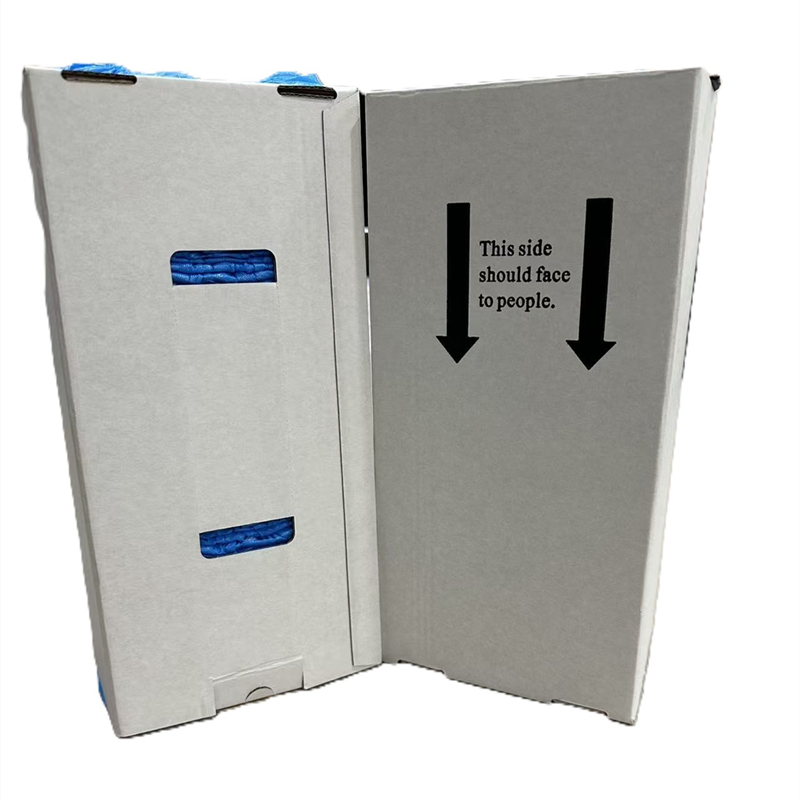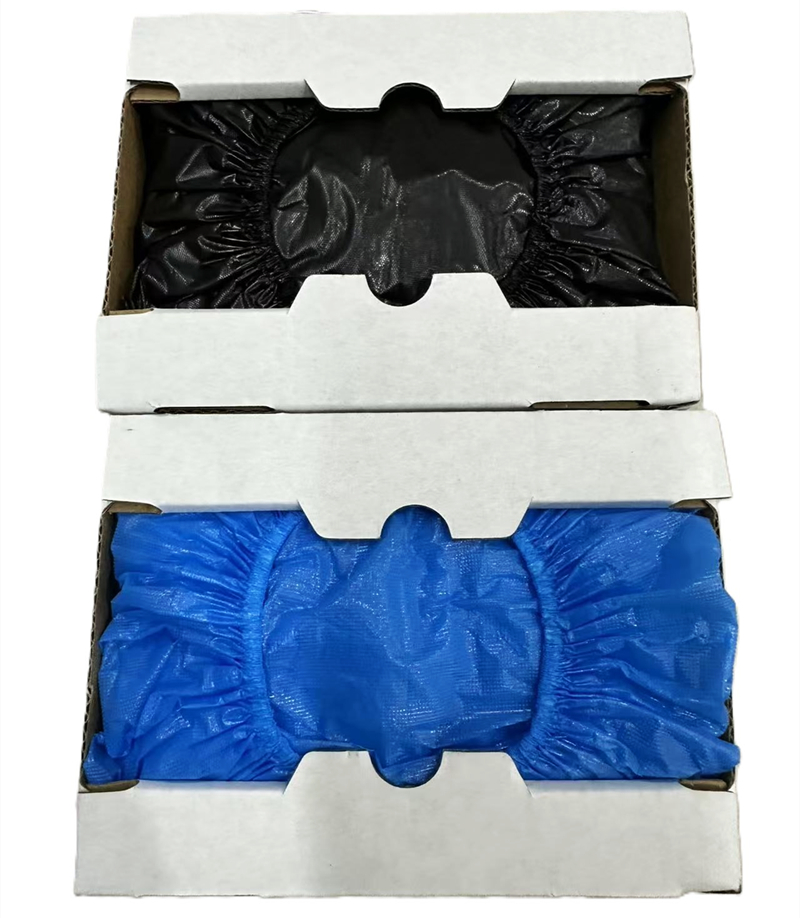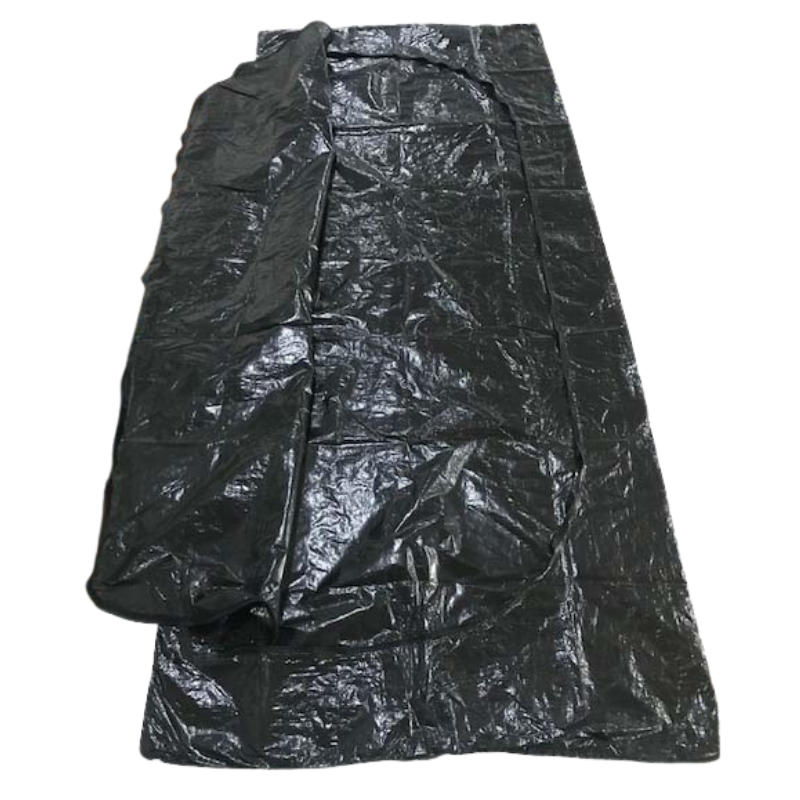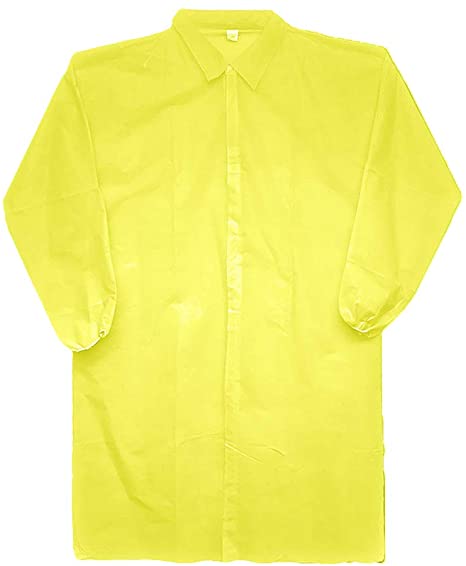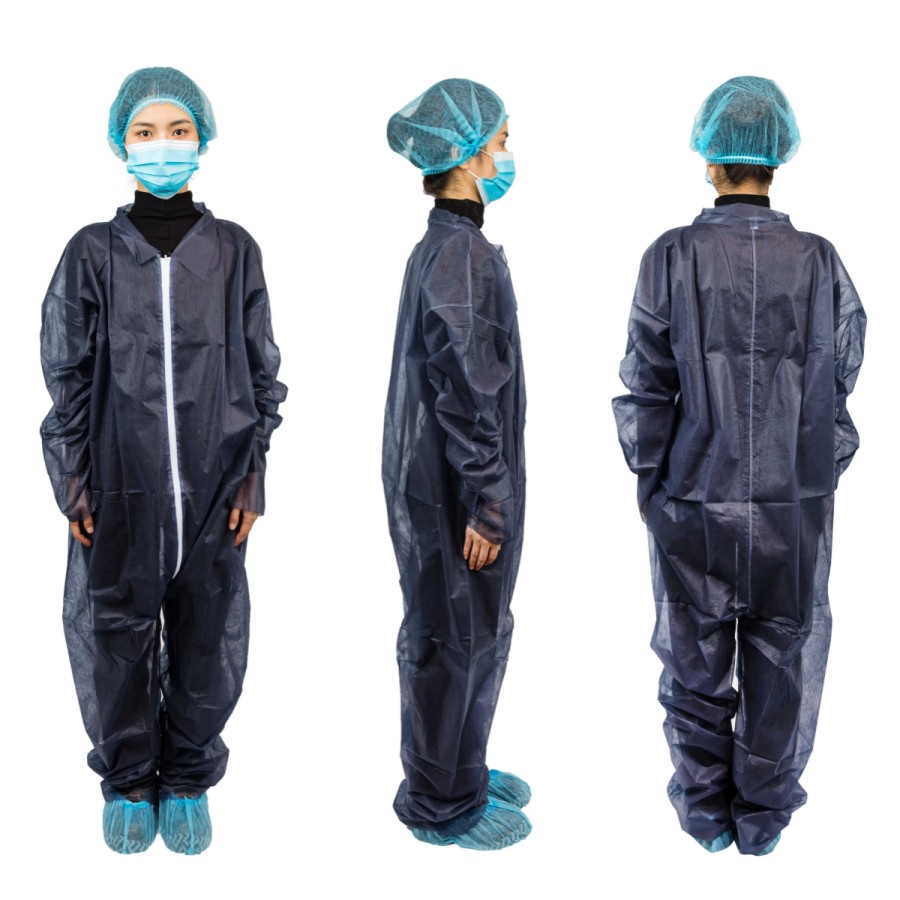So, what are disposable aprons used for?
Definition and Types of Disposable Aprons
Disposable aprons are a type of personal protective clothing designed to protect the wearer’s clothes from harmful substances, bodily fluids, and potential contaminants. These aprons are typically single-use items, meaning they are disposed of after use to prevent cross-contamination and the spread of infection.
There are various types of disposable aprons, each designed for specific uses and environments. Here are the most commonly used types:
- Disposable Plastic Aprons: Made from lightweight, waterproof plastic such as polyethylene or polypropylene, these aprons are ideal for environments where the wearer might be exposed to fluids. These are commonly used in medical settings, cleaning tasks, and food processing.
- Heavy-Duty Disposable Aprons: These aprons are made from thicker plastic and are designed to provide an extra layer of protection. They’re typically used in environments with a higher risk of exposure to harmful substances or sharp objects.
- Disposable Lead Aprons: These are used in medical settings where the wearer might be exposed to radiation, such as in X-ray rooms. The lead lining provides a protective shield against radiation.
- Disposable Aprons with Sleeves: These aprons offer added protection by covering the arms. They are often used in healthcare settings during medical procedures that might cause splashing of blood or bodily fluids.
- Biodegradable Disposable Aprons: These are a more environmentally-friendly option, made from materials that break down over time, reducing environmental impact.
Each type of apron serves a specific purpose and is designed to offer protection in different scenarios. The type of disposable apron required will depend on the task at hand and the level of protection needed..
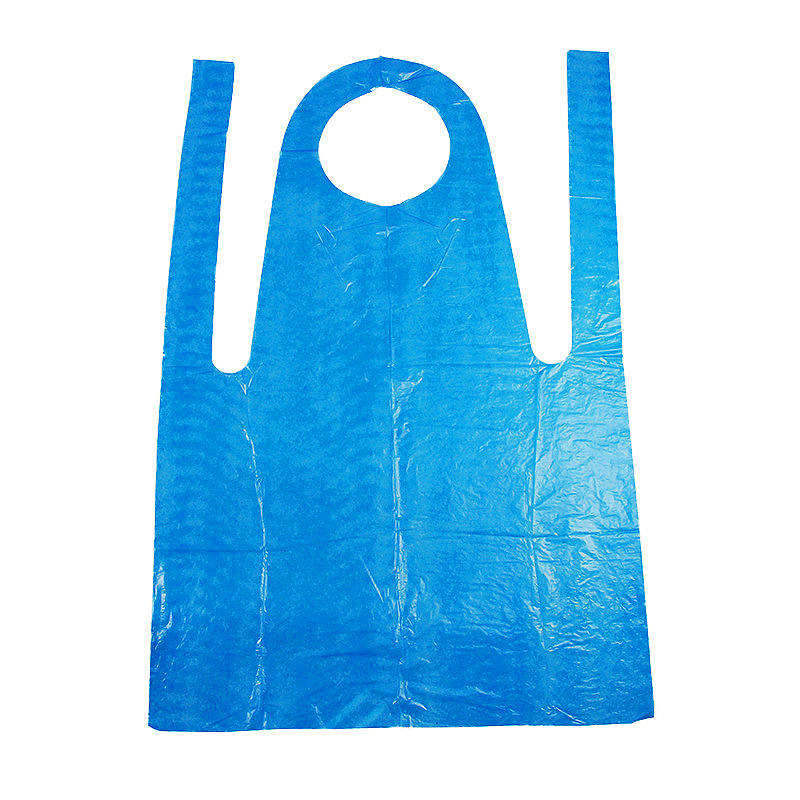
Disposable Apron and Personal Protective Clothing
Disposable apron is an integral part of personal protective clothing especially when working in an environment that exposes one to harmful substances or bodily fluids.
The Role of Disposable Plastic Aprons in Healthcare Associated Infections Control
Disposable plastic aprons are a critical tool in the fight against healthcare associated infections.
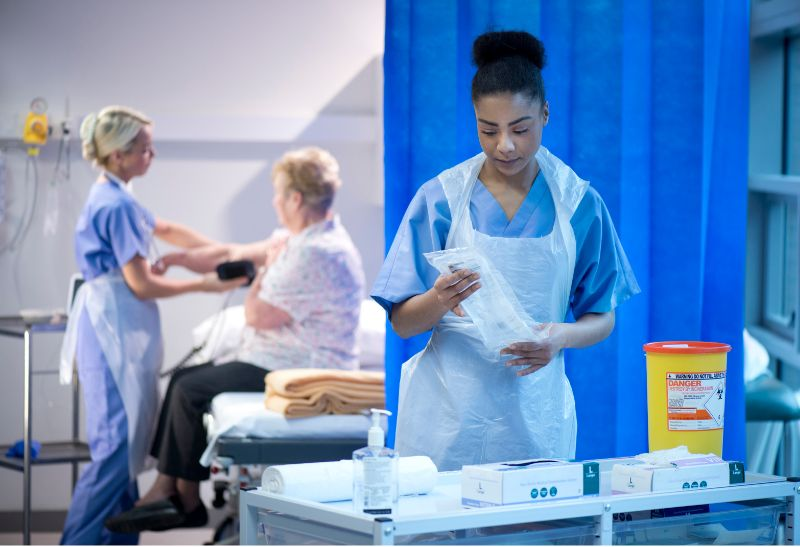
Understanding the Structure of Disposable Aprons
Disposable aprons typically have neck and waist straps for adjustable fitting, an outer surface that acts as a barrier, and an inner surface that is comfortable against the skin.
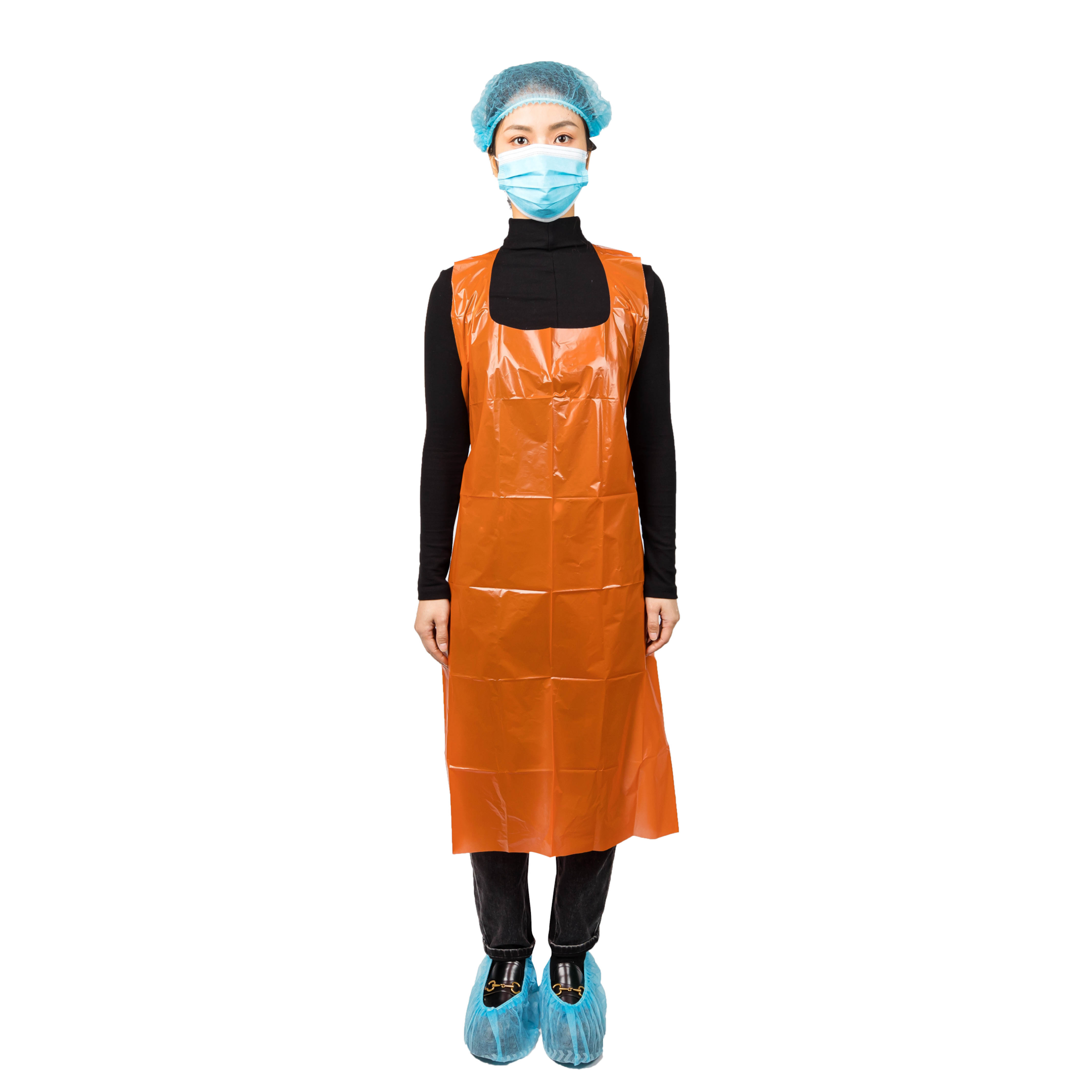
Disposable Aprons Use in the Food Industry
In the food industry, maintaining hygiene and preventing cross-contamination is of utmost importance. This is where disposable aprons come into play. Disposable aprons are commonly used in various areas of the food industry such as food processing, food service, and commercial kitchens. They serve as a physical barrier between the wearer’s clothing and potential sources of contamination such as raw food, spills, and splashes.

Disposable Aprons in the Medical Field
Disposable aprons are also commonly worn in the medical field during medical procedures to protect against cross contamination.In the medical field, the use of disposable aprons is crucial. They are part of the personal protective equipment (PPE) that healthcare professionals wear to protect themselves and their patients from infections and harmful substances.
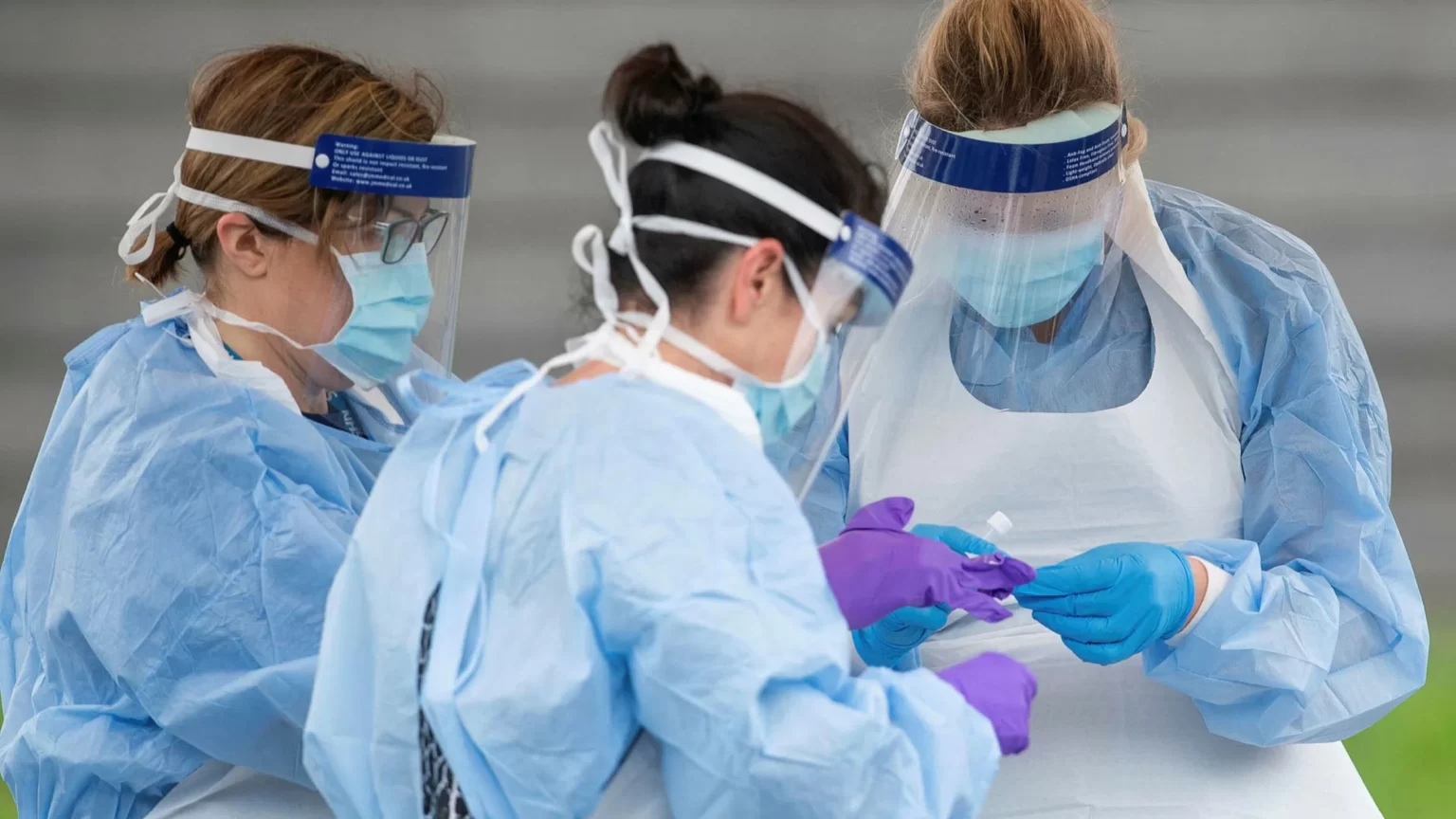
The Importance of Proper Disposal
After use, disposable aprons must be disposed of in the appropriate hazardous waste bin.
The Risk of Not Using Disposable Aprons
Without disposable aprons, you risk exposure to harmful substances, which can lead to infections and health complications.
Comparing Disposable Aprons and Reusable Aprons
While reusable aprons can be washed and reused, disposable aprons are designed for one-time use.
Disposable Aprons and Personal Protection
Disposable aprons, along with other personal protective equipment like disposable gloves, offer a high level of personal protection.
Other Protective Clothing
In addition to disposable aprons, other protective clothing such as full body gowns and disposable gloves also play a crucial role in ensuring health and safety.
The Importance of Proper Hand Hygiene
Along with wearing disposable aprons, maintaining proper hand hygiene is paramount to prevent contamination.
Disposable Aprons and Infection Control
The use of disposable aprons is a key strategy in infection control, helping to reduce the spread of diseases.
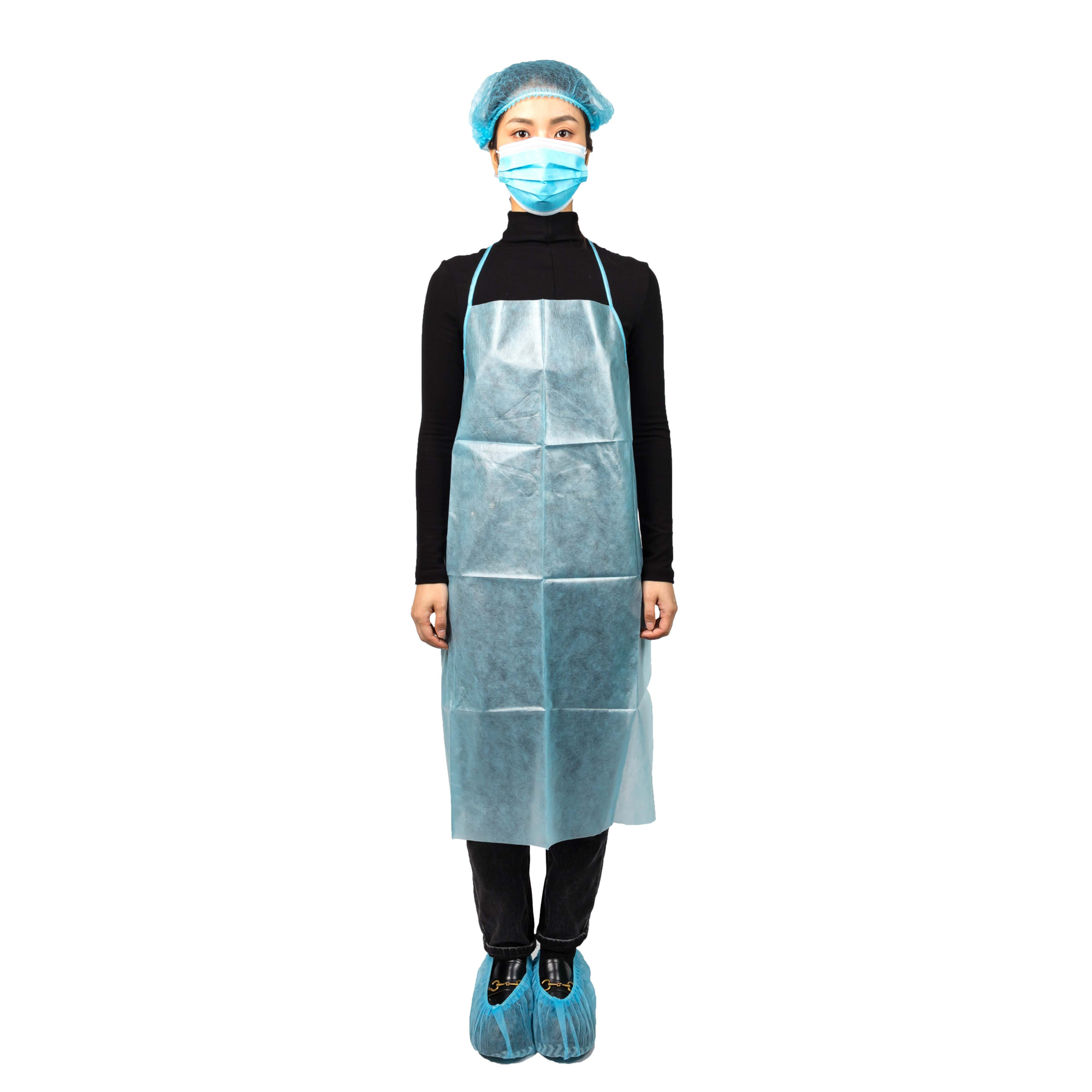
The Role of Companies like Wuhan Youfu in Providing Disposable Aprons
Companies like Wuhan Youfu have a significant role in the production and supply of disposable aprons worldwide. Known for their high-quality products, they contribute to infection control and health and safety in various industries. Whether it’s in the food industry, healthcare, or any field that requires personal protection, Wuhan Youfu’s disposable aprons ensure a high level of safety and infection control, thus helping reduce the risk of healthcare associated infections and cross contamination.
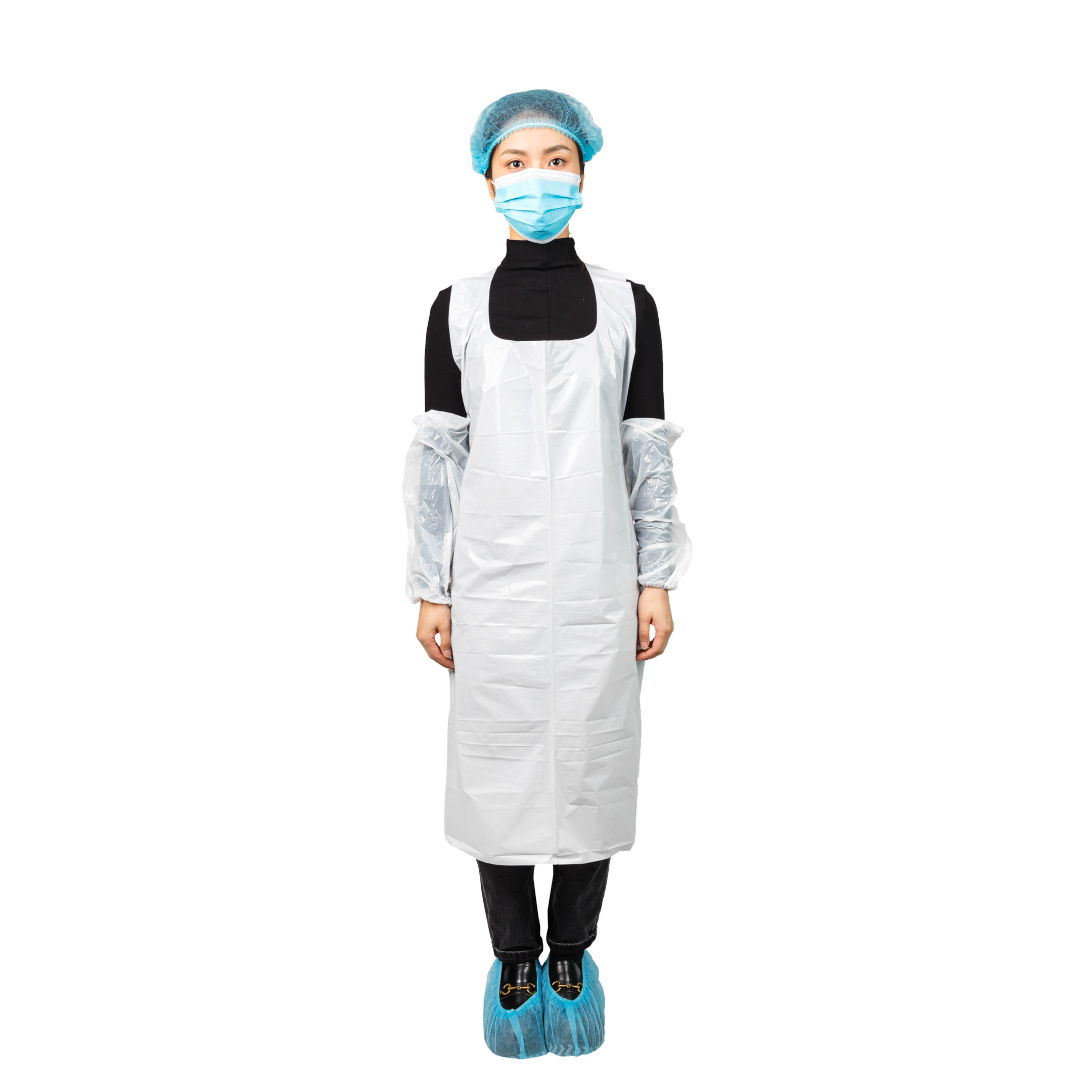
Preguntas frecuentes
- What are the materials used in making disposable aprons?Disposable aprons are typically made from lightweight yet robust materials like polyethylene or polypropylene. These materials offer excellent resistance against liquids, making them ideal for use in environments where exposure to bodily fluids or harmful substances is possible.
- Can disposable aprons be reused?No, disposable aprons are designed for single use only. After use, they should be disposed of in an appropriate hazardous waste bin to prevent cross contamination.
- How should disposable aprons be stored?Disposable aprons should be stored in a clean, dry location to maintain their integrity. They should also be kept out of direct sunlight and extreme temperatures.
- Can disposable aprons be recycled?While some types of disposable aprons can be recycled, it’s important to check with your local recycling guidelines. Aprons that are contaminated with bodily fluids or other harmful substances should be disposed of in a hazardous waste bin.
- Are there any potential risks associated with disposable aprons?When used properly, disposable aprons are safe. However, they should not be used as the sole protective measure. They are part of a broader personal protective equipment package that includes items like gloves and masks.



